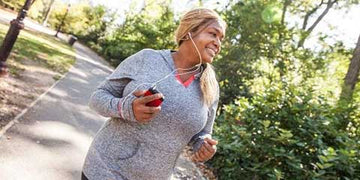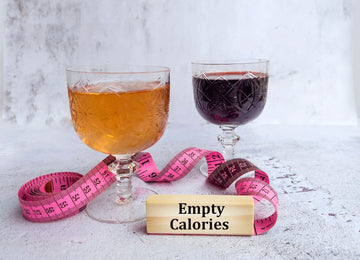by Anthony Benjamin on Oct 12, 2022

Duodenal Switch Surgery Side-Effects & Vitamins
Have you made the decision to fight obesity through bariatric surgery? If you’ve read up on gastric bypass surgery and gastric sleeve, then duodenal switch surgery will sound quite familiar. It is a combination of the two surgeries with the added benefit of eating a rather “normal” diet.
Biliopancreatic diversion with duodenal switch, or BPD/DS, is a surgery that removes a portion of the stomach and bypasses part of the small intestine. This surgery typically results in successful weight loss and improvements in and resolution of all major co-morbidities, including type 2 diabetes, sleep apnea, hypertension, high cholesterol, and depression. A very high cure rate for diabetes has been reported with this surgery.
The following is an overview of duodenal switch surgery, some of the side effects, and your vitamin and nutrient needs after the surgery.
What is Duodenal Switch Surgery?
 When you have duodenal
switch surgery, the majority (75- 90%) of your stomach is permanently removed, creating a
“sleeve” or banana-sized pouch, while keeping basic stomach structure the same.
Additionally, your surgeon will bypass and reconnect a large portion of your upper small
intestines, resulting in a significant decrease in calorie absorption, or “malabsorption.”
When you have duodenal
switch surgery, the majority (75- 90%) of your stomach is permanently removed, creating a
“sleeve” or banana-sized pouch, while keeping basic stomach structure the same.
Additionally, your surgeon will bypass and reconnect a large portion of your upper small
intestines, resulting in a significant decrease in calorie absorption, or “malabsorption.”
Weight loss is achieved through restriction of food consumption (4-6 ounces will make you feel full), as well as malabsorption. In DS surgery, like gastric sleeve, the portion of the stomach that’s removed produces ghrelin, the hormone that makes you feel hungry. By reducing the size of your stomach and removing the “hunger” center you will feel less hungry, the amount of food you can eat at one time is restricted, and you will feel full faster with fewer calories.
However, all the important structural elements of the stomach and intestines are preserved – the antrum, the pylorus, and the nerves that control stomach function – allowing you to enjoy a fairly normal diet (in smaller quantities) without experiencing “dumping” syndrome.
Advantages of DS Surgery
- Lose up to 65-80% excess weight in first year.
- Improvement/resolution of obesity-related diseases – mainly type 2 diabetes, sleep apnea, hypertension, high cholesterol, depression.
- This surgery has a high cure rate for diabetes.
- Less chance of dumping syndrome.
- NSAIDS and Aspirin, as well as other vitamins, minerals, and medications, are well tolerated.
DS Switch Complications & Vitamins
 Within one year, complications occur in roughly 25% of patients.
These include gastrointestinal side effects, flatulence, malodorous stools, and steatorrhea,
as well as major complications of gastrointestinal anastomotic leak, dumping syndrome,
malnutrition, iron-deficiency, protein-calorie malnutrition, hypocalcemia, and deficiency of
fat-soluble vitamins, vitamin B1, vitamin B12, and folate.
Within one year, complications occur in roughly 25% of patients.
These include gastrointestinal side effects, flatulence, malodorous stools, and steatorrhea,
as well as major complications of gastrointestinal anastomotic leak, dumping syndrome,
malnutrition, iron-deficiency, protein-calorie malnutrition, hypocalcemia, and deficiency of
fat-soluble vitamins, vitamin B1, vitamin B12, and folate.
Due to the extent of malabsorption after duodenal switch surgery, you will need to take vitamins and supplements every day for the rest of your life. If you stop taking any of the prescribed vitamins, you will be twice as likely to develop nutrient deficiencies that can be life-threatening.
For example, not enough magnesium and your heart can beat erratically; not enough vitamin D3 with calcium and your bones may weaken; not enough minerals or electrolytes and your body can suffer on a cellular level. And the blend of B vitamins is critical to nearly every physiological need in the body, including healthy brain function.
 The following supplements are most commonly prescribed after DS
surgery:
The following supplements are most commonly prescribed after DS
surgery:
- Multi-vitamin/mineral supplement
- Additional calcium
- Additional iron
- Additional B-complex
- Fat-soluble vitamins (A, D, E, and K) in a dry form
- Probiotics (beneficial bacteria for intestinal tract)
- Additional copper
- Additional zinc
Routine blood tests and follow-up visits with your doctor are essential to ensure your body is getting enough nutrients. You’ll also meet with a nutritionist or dietitian around the same time as your check-ups with your doctor to troubleshoot and create a continued plan for success.
Top 8 DS Surgery Side Effects & How to Avoid Them
 Malnutrition is a huge problem with DS
surgery and comes in many forms. It may not be noticeable until it seriously affects your
health, which is why regular blood work is so important. No matter which weight loss surgery
you have – gastric sleeve, Lap band, gastric bypass, DS, or revision surgery – the inability
to take in enough calories along with certain food groups can lead to decreased consumption
of protein, minerals, and vitamins. There can also be a problem absorbing nutrients due to
diarrhea, nausea, or digestive issues.
Malnutrition is a huge problem with DS
surgery and comes in many forms. It may not be noticeable until it seriously affects your
health, which is why regular blood work is so important. No matter which weight loss surgery
you have – gastric sleeve, Lap band, gastric bypass, DS, or revision surgery – the inability
to take in enough calories along with certain food groups can lead to decreased consumption
of protein, minerals, and vitamins. There can also be a problem absorbing nutrients due to
diarrhea, nausea, or digestive issues.
The next five on the list all contribute to malnutrition, so if you experience any of them, they should not be ignored or presumed that they’ll simply go away. By being proactive and taking your daily bariatric-specific supplements and sticking to your food plan, you have a better chance of avoiding these side effects for long-term health.
Food Intolerances: Though all foods can be eaten after the procedure, your much smaller stomach only holds about 2 tablespoons of food and produces less stomach acid, creating a decreased tolerance for harder-to-digest foods like protein, fried foods, and dairy. As you learn what you can and can’t eat, it’s best to completely avoid food that causes upset stomach, diarrhea, and other digestive issues.
Nausea is one of the most common issues and generally improves after recovery. For some, the problem persists for months or even long-term. Nausea medications and eating a diet that’s easier to digest may help.
Dyspepsia & GERD: Indigestion, heartburn, or gastroesophageal reflux disease (GERD) are common and include bloating, nausea, feelings of fullness, and stomach upset, which often require medication. Again, what you eat and how much, as well as taking your supplements and prescribed medications can alleviate these uncomfortable conditions.
 Gallstones and gallbladder removal are very
common after all types of bariatric surgery due to difficulty digesting certain foods. Avoid
high-fat, creamy, and fried foods and add bell peppers, beets, dark leafy greens, and
low-fat options. Drinking adequate water will also help.
Gallstones and gallbladder removal are very
common after all types of bariatric surgery due to difficulty digesting certain foods. Avoid
high-fat, creamy, and fried foods and add bell peppers, beets, dark leafy greens, and
low-fat options. Drinking adequate water will also help.
Diarrhea can persist long after surgery, leading to dehydration and malnutrition. Your surgeon or gastroenterologist can give you medication to stop it. It’s also important to get enough liquids, probiotics, and fiber in your diet to help avoid chronic diarrhea.
Hair thinning and hair loss after bariatric surgery is very common. You may start losing hair abruptly for up to 6 months post-surgery. Hair loss is part of the normal growth cycle – 5-15% of our hair is in the resting phase at any given time and this is the hair you will shed. It is usually temporary and will return to normal as long as you take your vitamins, minerals, and supplements.
Initial failure to lose weight and sleeve dilation: Several factors can lead to not losing or gaining weight after surgery – if your pouch wasn’t made small enough, if discharge instructions are ignored, or if you overeat and your pouch stretches, allowing you to consume more food.
Adhering to the long-term lifestyle, diet, nutritional, and exercise plan prepared for you by your weight-loss medical team while being careful not to overeat – even healthy foods – will be the road to weight loss success.
Vitamin & Nutrient Needs After DS Surgery
With duodenal switch surgery, the dramatic decrease in food and the inability to absorb nutrients can lead to inadequate nutrition that’s required for the body to heal, as well as for proper sleep, energy, nerve and brain function; cardiac health, bone, teeth, muscle strength, hair health; hormone function, and emotional well-being.
 Though a
whole-food diet is a great start, even the highest-quality diet is unlikely to supply all
the nutritional needs of the body. That’s why bariatric-specific vitamins, minerals, and
added protein are crucial to getting healthy and staying that way.
Though a
whole-food diet is a great start, even the highest-quality diet is unlikely to supply all
the nutritional needs of the body. That’s why bariatric-specific vitamins, minerals, and
added protein are crucial to getting healthy and staying that way.
Instead of taking handfuls of vitamins multiple times per day, which gets tiresome and often leads to giving up, ProCare Health has created a chewable once-daily multivitamin that makes it simple! Our bariatric-specific vitamins and minerals offer easy-to-take, affordable, complete nutrition that you can sustain for life.
A Daily Bariatric Multivitamin: take a bariatric-specific multivitamin with adequate B vitamins, folate, zinc and biotin, as well as vitamin D. ProCare Health has several bariatric multivitamin choices – we have easy-to-digest, once-daily capsules or chewables that come with or without varying milligrams of iron for those with iron deficiency or anemia.
In fact, our DS/SADI gluten-free and dairy-free veggie capsule is formulated to be a once-daily bariatric vitamin for those who had a Duodenal Switch or SADI procedure! Both procedures bypass parts of the small intestine, an organ that digests food and absorbs nutrients. Patients who undergo these procedures experience malabsorption. Luckily, our DS/SADI multivitamin provides the iron, thiamine, fat-soluble vitamins A, D, E, and K, vitamin B6, zinc, copper, and chromium that patients need!
 Calcium
with Vitamin D: ProCare Health’s one-of-a-kind Calcium Dark Chocolate
500 mg Calcium Plus 500 IU Vitamin D bars are a favorite! Our melt-in-your-mouth, 65%
bean-to-bar dark chocolate has less than 2g of sugar, is non-GMO, certified Kosher,
gluten-free, soy-free, all-natural, and organic, and is made with Trucal®.
Calcium
with Vitamin D: ProCare Health’s one-of-a-kind Calcium Dark Chocolate
500 mg Calcium Plus 500 IU Vitamin D bars are a favorite! Our melt-in-your-mouth, 65%
bean-to-bar dark chocolate has less than 2g of sugar, is non-GMO, certified Kosher,
gluten-free, soy-free, all-natural, and organic, and is made with Trucal®.
Trucal is an all-natural, lactose-free calcium with a higher absorption rate than that of calcium carbonate, and equal to or greater than calcium citrate. Unlike other calcium, Trucal offers a balanced profile of essential minerals and antioxidants, with all the healthy parts of milk yet very low in lactose. Thus, making Trucal the superior choice for achieving optimal bone, hair, teeth, and neurological health. It’s even packaged in the USA and a Rainforest Certified Alliance. It really doesn’t get any better than this!
Protein: Protein is essential to overall health. Most doctors recommend protein supplements that are easily digestible and low in sugar, as eating enough protein after surgery can be difficult and lead to stomach upset.
ProCare Health has a few delicious, easy-to-absorb, convenient protein supplements. Sugar-free, gluten-free LiquiCel has 16 grams of liquid protein in 1 ounce and is packed with flavor (orange, watermelon, peach-mango, lemonade, grape). We also have lactose-free, gluten-free, easy-to-dissolve ProCel Whey Protein powder with 15 grams of protein in chocolate and vanilla – a perfect addition to shakes, smoothies, and even coffee.
 Consider additional
B-complex. B-vitamin deficiencies are extremely common and often an additional dose
is recommended. The best way to absorb extra B vitamins is by taking a B-complex as a liquid
or dissolvable tablet under your tongue. B-complex generally have all the essential B
vitamins, including biotin, which can help with healthy hair. B vitamins keep your
metabolism running smoothly and play a role in every cell in the body, as well as nerve and
cognitive function.
Consider additional
B-complex. B-vitamin deficiencies are extremely common and often an additional dose
is recommended. The best way to absorb extra B vitamins is by taking a B-complex as a liquid
or dissolvable tablet under your tongue. B-complex generally have all the essential B
vitamins, including biotin, which can help with healthy hair. B vitamins keep your
metabolism running smoothly and play a role in every cell in the body, as well as nerve and
cognitive function.
Surgical Side-Effects & Solutions
There are a few other side effects that have more to do with the surgery itself, such as a stomach obstruction, hernia, or delayed leak. It’s important to have a detailed conversation with your bariatric surgery medical team and go over all the risks involved with duodenal switch and any other weight-loss surgery.
By following up regularly with your medical team and adhering to a healthy diet and life-long supplement
One-a-Day ProCare Health Supplements
 At ProCare Health, we know what a big decision bariatric
surgery is and how complicated the post-surgical supplementation can be. In our quest to
make it easier, we collaborated with bariatric doctors and dietitians at the University of
MO-Bariatrics to create, fine tune, and test our chewable, one-a-day multivitamin to ensure
its efficacy for weight loss patients. Once implemented, it quickly became the “vitamin of
choice” due to ease and affordability, and adherence to taking the required vitamins
increased from 35% to 87%!
At ProCare Health, we know what a big decision bariatric
surgery is and how complicated the post-surgical supplementation can be. In our quest to
make it easier, we collaborated with bariatric doctors and dietitians at the University of
MO-Bariatrics to create, fine tune, and test our chewable, one-a-day multivitamin to ensure
its efficacy for weight loss patients. Once implemented, it quickly became the “vitamin of
choice” due to ease and affordability, and adherence to taking the required vitamins
increased from 35% to 87%!
If you need additional help or have any questions about our bariatric vitamins or supplements, our team is here for you. We celebrate that you’ve chosen to get healthy and would be honored to be part of your weight loss and new life journey! Please contact us today with questions, to get a free sample, or to place an order. 877-822-5808
Please note: the information contained within this article is in no way to be considered medical advice nor is it meant to replace your medical team’s recommendations. This article’s purpose is to educate and allow the reader to make informed decisions with the help of his or her medical team.

Can You Drink Caffeine After Bariatric Surgery?

Can You Drink Alcohol After Bariatric Surgery?

How To Find Support Post-Bariatric Surgery

